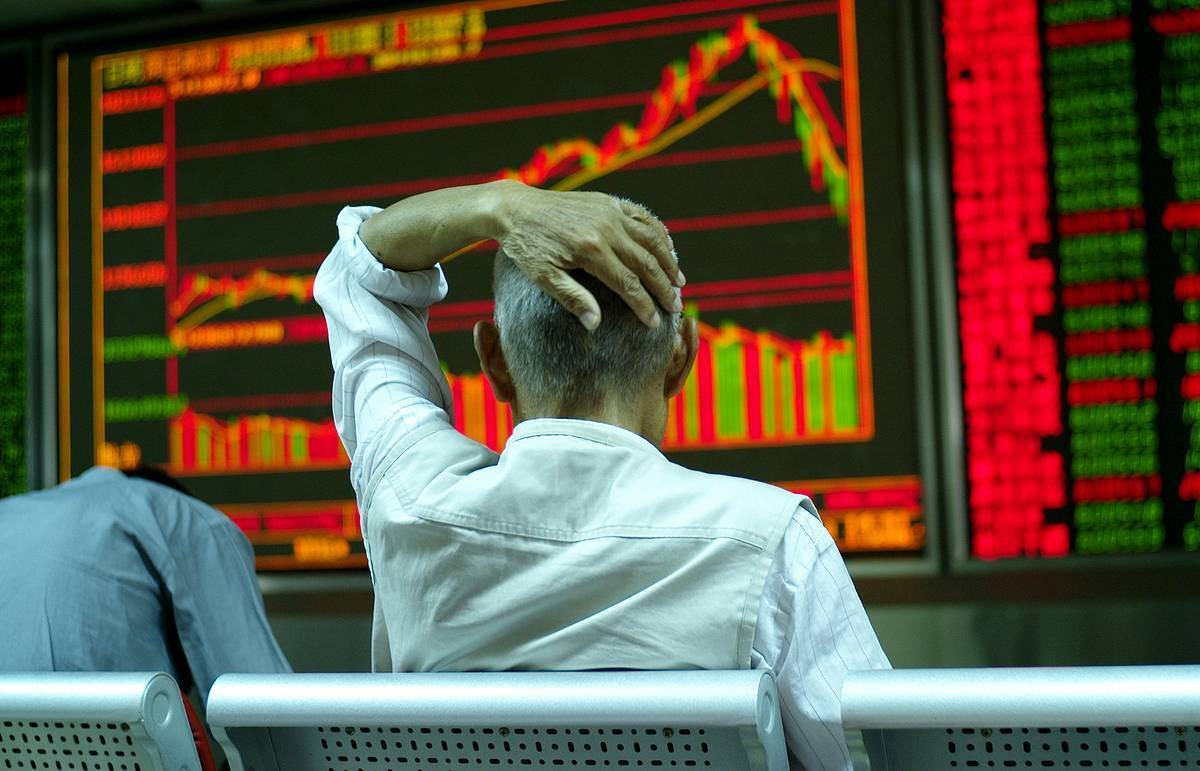On Monday's trading, key European stock indices are declining amid the release of data on a dramatic drop in the German Ifo business climate index. Investors are more likely to face a tough week. This week, the US Federal Reserve will hold a meeting and leading EU companies will issue their quarterly reports.

At the time of writing, the STOXX Europe 600 index of Europe's leading companies dropped by 0.14% to 425.10 points.
Meanwhile, the British FTSE 100 fell by 0.21% to 7,260.31 points, the French CAC 40 lost 0.31% to 6,210.83 points and the German DAX decreased by 0.31% to 13,215.02 points.
Top gainers and losers
The shares of Irish airline Ryanair Holdings Plc soared by 2.4%.
The stocks of Austrian banking group Raiffeisen Bank International gained 4.7%.
The market capitalization of British-Russian metallurgical company Polymetal International Plc increased by 4.6%.
The shares of Dutch multinational company Royal Philips NV dropped by 10%.
The stocks of British mobile operator Vodafone rose by 0.2%.
Shares of Germany's largest importer of Russian gas Uniper sank by 9% and stocks of its parent company Fortum fell by 7.1% on the news that the German government plans to buy a 30% stake in Uniper to provide it with additional aid due to reduced Russian gas supplies to Germany.
Current market sentiment
According to data released on Monday morning by the Ifo Institute for Economic Research in Munich, Germany's Ifo business climate index fell to 88.6 points, i.e. a two-year low, from 92.2 points in June. Moreover, analysts forecasted the decline to 90.2 points.
At the same time, the sub-index of German business in the next six months fell to 80.3 points from 85.5 points. The indicator assessing the current situation dropped to 97.7 points from 99.4 points in June.
This week, European market players mainly focus on the US Federal Reserve's meeting. It will end on Wednesday. Analysts expect the US regulator to increase the basic interest rate by 75 basis points. Moreover, some experts believe a more significant rate hike, i.e. by 100 basis points, is possible.
Overall, investors try to avoid risk this week. On Monday, the Asia-Pacific stock markets are declining, oil prices are dropping, and the euro is falling against the dollar. Investors still assess the moves of the key central banks and discuss the possibility of a recession in the global economy amid their hawkish sentiment.
Previous trading results
Last Friday, European stock indices rose slightly and closed the trading week with gains.
Consequently, the STOXX Europe 600 index of Europe's leading companies rose by 0.3% to 425.71 points. The index has gained 2.9% since the start of last week.
Shares of Swedish cloud platform provider Sinch AB and delivery service Just Eat Takeaway.com were the top gainers among the STOXX Europe 600 components. They soared by 14% and 13.8% respectively.
The British FTSE 100 rose by 0.08% to 7,276.37 points, the French CAC 40 gained 0.25% to 6,216.82 points and the German DAX added 0.05% to 13,253.68 points.
Meanwhile, the FTSE 100 gained 1.7%, while the CAC 40 and DAX rose by 3% over the past week.
On Friday, the shares of German food delivery service operator Delivery Hero SE surged by 5.6%. According to preliminary financial outcome, the company's revenue rose 38% in April-June.
The market capitalization of Swedish steel company SSAB AB grew by 1%. According to the outcome of the reporting period, the company's quarterly revenue increased by 1.5 times, while its net profit rose by 2.5 times.
Stock prices of Danish bank Danske Bank AS sank by 2.2% amid weak reports. The bank's net profit fell by 37% in the second quarter fiscal year 2022. In addition, the company's management announced that it would not pay Q2 dividends for 2021.
Earlier, European stock market players assessed the outcome of the ECB's July meeting. Consequently, the regulator increased its benchmark interest rate immediately by 50 basis points for the first time since 2011.
As reported in the central bank's press release, the major reason for the significant increase in the key rate was June's inflation data in the euro area.
Notably, the EU Statistical Office estimated that in June consumer prices in the euro zone countries had risen by 8.6% in annual terms. Moreover, this figure was the highest since the start of data calculation. Currently, the inflation rate in the EU countries exceeds the central bank's target level of 2% more than four times.
In addition, earlier the ECB announced that it would launch a new anti-fragmentation tool, i.e. Transmission Protection Instrument. This is a bond-buying option designed to curb fluctuations in the debt market as borrowing costs fall.





















